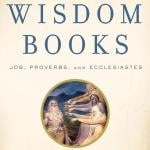David assembles the leaders of Israel for Solomon’s coronation (1 Chronicles 28–29; cf. 29:22), and, even more importantly, to encourage them to contribute skill, energy, and material to the temple, King Yahweh’s fortress. Judged by terminology used elsewhere in the Old Testament, his descriptions of the temple are eccentric. Initially, he describes his own desire to build the temple as a “house of rest for the ark of the covenant of Yahweh and the footstool of our God” (28:2). The... Read more


















